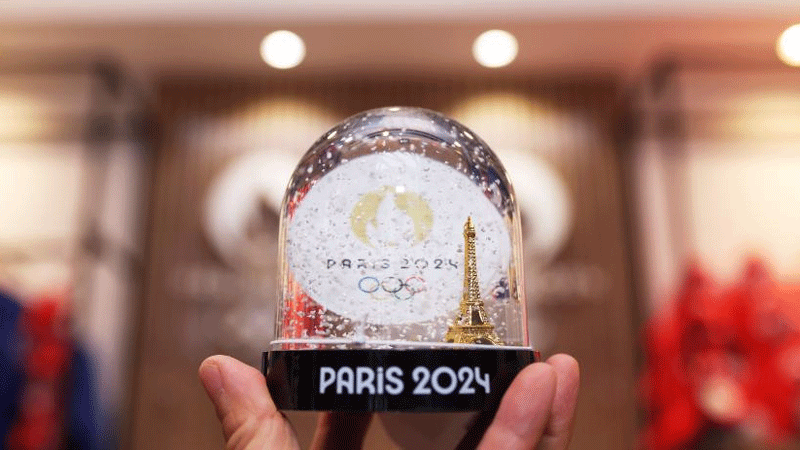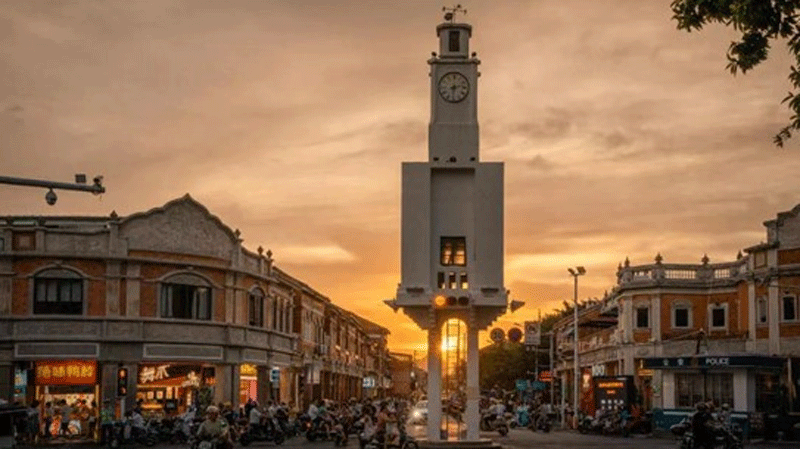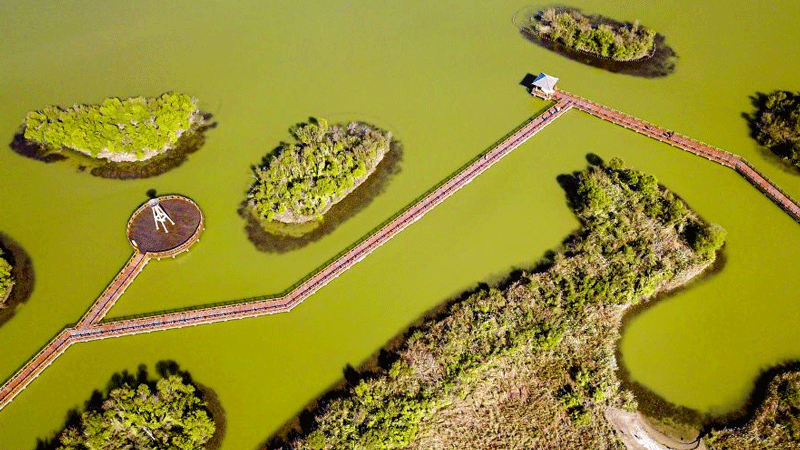A filmmaker’s endeavour: mixture of Chinese and Thai culture
Editor’s Note:
China and Thailand have been close neighbors for generations. Cultural exchange and collaboration between the two countries have long been an important cornerstone of their relationship.
Sedthawut Inboon, a Thai writer and content creator whose work is greatly affected by Chinese culture, and Li Sichen, a Chinese independent filmmaker who has been working on fusing Chinese and Thai art, shared their stories and thoughts on China-Thailand collaboration.
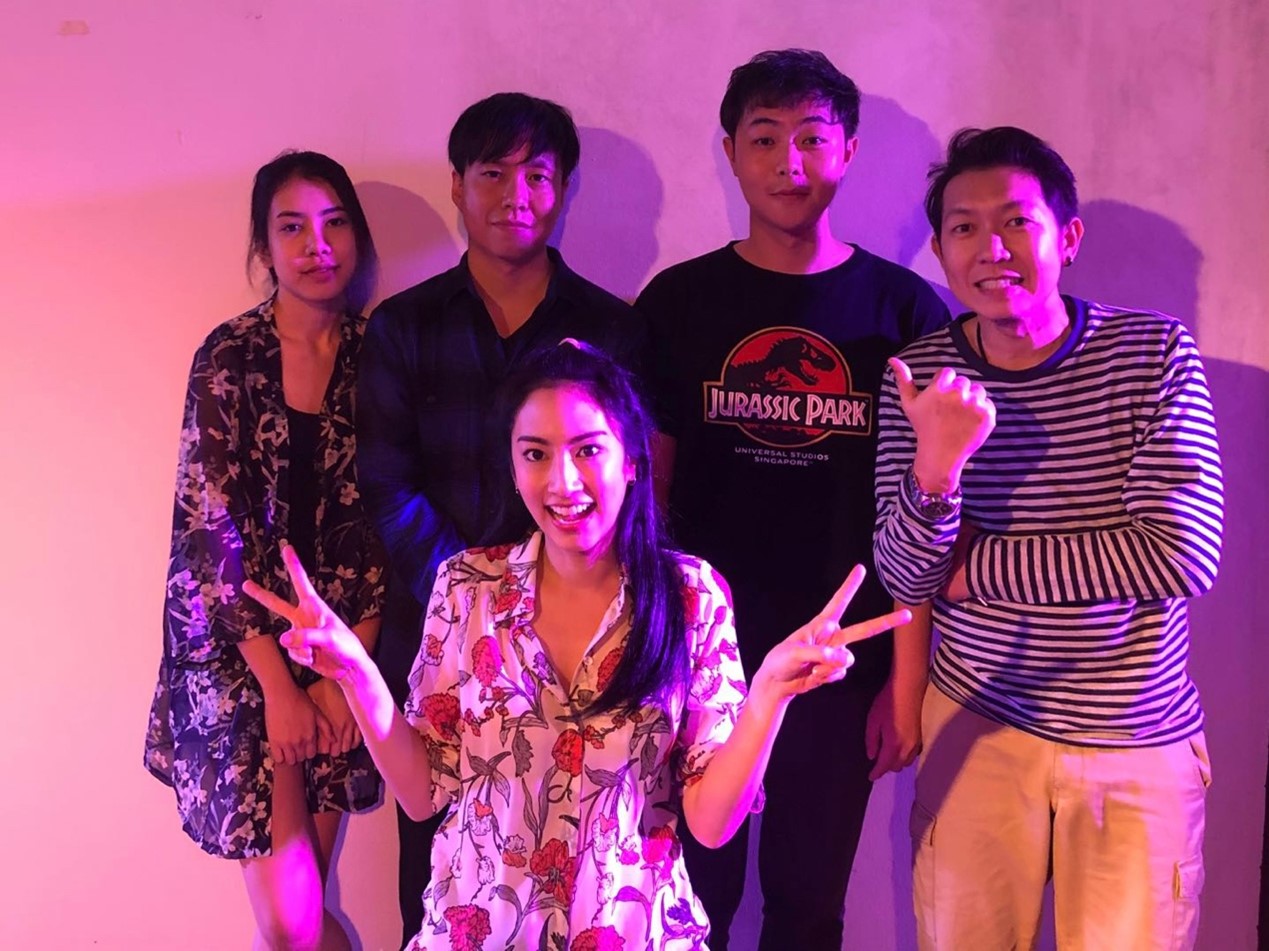
In their Bangkok studio, Li (second on the right) and his Thai colleagues create scripts for Chinese-Thai TV shows. (Image courtesy of Li Sichen)
A week prior to the start of the Asia-Pacific Economic Cooperation (APEC) Economic Leaders' Meeting, Bangkok hosted the traditional festival of “Loy Krathong” on November 8th, during which the Thais release water lanterns and wish for good fortune. Floating lamps filled the city’s rivers and canals, turning the well-wishers into glittering silhouettes in the shimmering light.
As he watches the festival from his home in Beijing, Li Sichen, a 31-year-old Chinese independent filmmaker, is reminded of his years spent in Thailand before the COVID-19 pandemic.
“I attended my first Loy Krathong festival when I was an art student in Bangkok a decade ago. The wish I made as I let go of my lantern was to act as a bridge between Chinese and Thai cultures, and it has persisted and developed into the career path I'm now on,” said Li.
The COVID-19 pandemic derailed Li’s master plan, while he left his Bangkok studio and has never been back since. After a hiatus of three years, Li has decided to return to Bangkok and resume working on his cross-cultural art projects between China and Thailand.
A Cultural Envoy to China and Thailand

Li (second on the right), who played one of the eight mortals, Zhang Guolao, performed this unique kind of art for the Thai Princess Maha Chakri Sirindhorn, an enthusiast of Chinese culture. (Image courtesy of Li Sichen)
"I was shocked to observe how well Chinese and Thai cultures blended when I first visited Thailand. Chinese TV series such as Justice Pao are extremely well received in Thailand, while Thai artists have reworked traditional Chinese operas like The Legend of the White Snake for use in contemporary performance spaces," said Li.
As the only Chinese student majoring in theatre and drama studies in Bangkok's Chulalongkorn University's century-long history, Li's passion for Chinese and Thai culture and his command of the Thai language make him a unique figure.
Li used his time as a theatre student to create works that fused elements of Chinese and Thai theatrical traditions. One of his significant accomplishments was to master and innovate traditional Chinese Chaozhou Opera by incorporating Thai influences.

Chaozhou Opera with many Thai touches is being developed by Li and his Thai colleagues. (Image courtesy of Li Sichen)
Working with Chinese-Thai director Ampan Panjarensooglab, Li's team has created a new Chaozhou Opera production based on the classic Chinese myth The Eight Immortals Cross the Sea. The crew has kept the original Chinese storylines and art forms but have reworked the play to include Thai musical instruments, stage art, and modern Thai-language lyrics. Li, who played Zhang Guolao, one of the eight mortals, performed this unique kind of art for the Thai Princess Maha Chakri Sirindhorn, an enthusiast of Chinese culture.
"Many of our Thai viewers, including the princess herself, have expressed interest in learning more about Chinese culture, suggesting that they find the fusion of the two cultures particularly appealing," said Li.
In the years to come, Li has revelled in art projects combining traditional Chinese opera with modern Thai dance. His theatre work A Table And Two Chairs, co-acted by a Chinese Kun Opera performer and a contemporary Thai dancer, has received a great reaction from audiences in Southeast Asian countries, including Singapore and Thailand, creating a new art form to promote both Chinese and Thai culture.
"Despite their differences, Chinese and Thai cultures have always been able to coexist harmoniously. The two cultures are in coalition rather than confrontation, and such coalition gives rise to fresh ideas for both sides," said Li.
"A solid cultural base supports the cooperation and people-to-people contact between our two countries. I believe that by constructing a cultural bridge between China and Thailand, more young talents from both sides may contribute to our bilateral ties and cooperation in all fields," added Li.
Future expectations
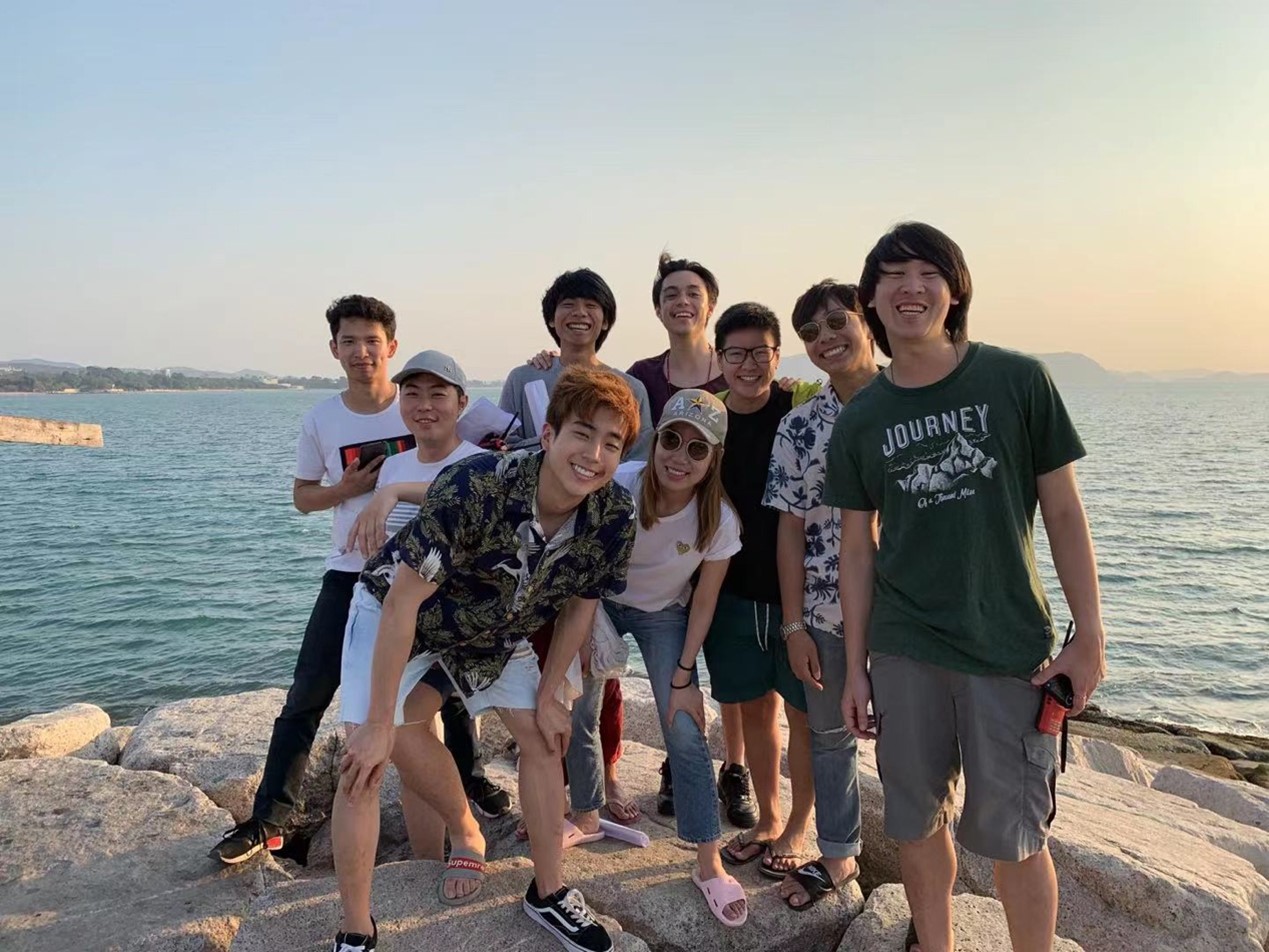
Li and his crew produce TV programs in Thailand. The cast includes performers and directors from China and Thailand. (Image courtesy of Li Sichen)
While Li has been prevented from returning to his Bangkok studio due to the pandemic, he has not ceased intercultural communication with his Thai colleagues. During the pandemic, he developed two television programs focusing on the experiences of modern Chinese and Thai youth.
"Thailand is known for its award-winning film crews and original content developers, while China is known for its abundant resources, creative ideas and cutting-edge technology. I am hopeful about the two nations' future cultural cooperation. The visit to Thailand by Chinese President Xi Jinping and the approaching APEC Economic Leaders’ Meeting will undoubtedly make the prospect even more promising," said Li.
"Many of my Thai friends are very interested in China's Belt and Road Initiative (BRI), which has been advocating for strengthening people-to-people ties. Open and connect are also part of the theme of this year's APEC. I think under the framework of APEC and BRI, our two nations can have more opportunities to cooperate. Meanwhile, our people can have more chances to know each other's culture and strengthen mutual understandings," Li added.
Related reading:
A young Thai's China story: understanding culture, embracing the future
Photos
Related Stories
- Thailand, China co-host investment forum to further enhance cooperation
- Interview: Decoupling from China is just a pipe dream, says Thai banker
- China, Thailand kick off joint air force training exercise
- China, Thailand laud bilateral cooperation
- China, Thailand reach consensus on future ties, railway, cyber security
- Thailand, China agree to carry on traditional friendship, expand bilateral cooperation
- Chinese FM calls China-Thailand ties "as close as one family"
- Interview: Thailand supports multilateralism, Global Development Initiative, says Thai deputy PM
- China's top legislator calls for enhanced China-Thailand relations
- Interview: Thailand expects to expand exports to China, says Thai deputy PM
Copyright © 2022 People's Daily Online. All Rights Reserved.






